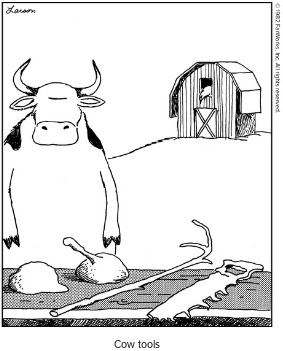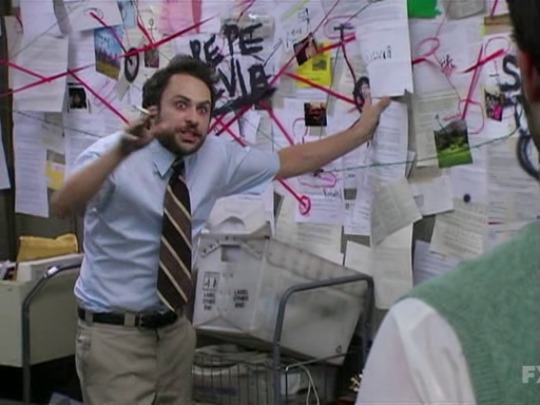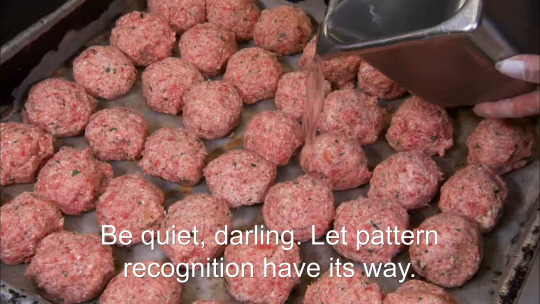#pattern recognition
Explore tagged Tumblr posts
Text
Nathan Fielder semi-unintentionally making the statement that functional autistic people have to choose between doing the things they want to do with their lives and affirming their diagnosis actually makes the most sense.
Spending millions of dollars of HBO's money to prove the point that listening to people who don't always come off as socially acceptable or easily digestible could save lives and improve society was absolutely cool as hell. Did everything he attempted to resolve the issue work? No, it's a comedy show and taking what he was doing 100% seriously would probably be a breach of contract.
In the end he came up with a simple way to get people to communicate a bit better that would be virtually free to implement and while it isn't a total solution, it isn't just a another soulless PowerPoint that most people forget the contents of immediately after it's finished. It's not challenging or excessive and he couldn't even get the current regulating body to consider it even though this crazy bastard is currently himself, a fully trained and licenced 737 pilot.
So yeah, idk, now he's out there bettering the industry flying planes being the change he wants to see in aviation and that's sick as fuck. Be the change you want to see one step at a time, take that literally, and remember, anyone can do anything if they rehearse enough.
79 notes
·
View notes
Text
Look, if you suspect that someone has done a joke edit of an image, but you can't see the difference, don't sit there playing Where's Waldo; load the original image and the suspected edit up in separate tabs with identical zoom levels, and rapidly toggle back and forth between them. Don't even look for anything in particular – just flip them back and forth as fast as you can. Even single-pixel discrepancies will immediately become obvious. Make the human brain's fuckass pattern recognition work for you rather than against you!
2K notes
·
View notes
Text
Oh wow how were you able to predict the plot twist in that movie?
My brother in christ, I read four hours a day. My pattern recognition is no longer a skill, it’s a curse.
#and it’s all fanfic#I used to read published books#the fanfic tbr grew out of control#ao3#fanfic#fandom#dead gay wizards#dead gay wizards from the 70s#marauders#pattern recognition#plot twist
12 notes
·
View notes
Text
cow tools and Pattern recognition
so. I like old newspaper cartoons such as Calvin and Hobbes, or, for today’s rant, The Far Side. But aside from reading them, I also enjoy reading ABOUT them.
now, many already know of the Cow Tools comic, but if you don’t, here it is

Now, this comic, for those who don’t know, once caused mass confusion and panic due to one little detail. One of the Cow Tools happened to resemble a handsaw. This led to thousands of people across the US during the comic’s original printing to decide that this means all the other objects were supposed to be other human tools[ as built by cows].
now, unfortunately, this is not the case. The joke was that if cows made tools, this is what they’d look like.
but the fact so many came to this conclusion and spent months [yes, MONTHS] trying to piece together what the cow tools were “supposed” to be says a lot about the human mind’s pattern recognition and stubbornness. Once we decide a conclusion is the “correct” one, we stubbornly try to prove it with any evidence we can piece together, usually utilizing pattern recognition alone if that’s the only evidence we can find.
now there’s two things this reminds me of, and one is FNAF lore, so I’m not touching that with a forty-three and 7/8ths foot pole.
the other, of course, is pseudoscience and pseudoarchaeology. How many of these theories rely on pattern recognition, like terrace farms actually being staircases for giants, or mountains being pyramids or treestumps?
Cow Tools provides a great microcosm of this phenomenon. The only difference is that Earth doesn’t have a cartoonist in charge who can explain that the joke isn’t that deep.
in conclusion, sometimes a cow tool is just a cow tool, no matter what your eyes are telling you.
#essay#writing#cow tools#calvin and hobbes#gary larson#far side#pseudoarchaeology#pattern recognition
725 notes
·
View notes
Text
"Some people rarely ever connect the dots in life. Others do connect them but end up being overwhelmed by the amount of information. Then there are those who connect the dots and are also able to make use of them. For the latter group, patterns become the real Guru which help them understand the relationship between different ideas and experiences."
- Omar Cherif
#perspective#pattern recognition#mature masculine#teacher#growth#shadow work#eventually everything connects
11 notes
·
View notes
Text
Pattern recognision test lol

#pattern recognition#lets gooooo#malevolent#malevolent podcast#malevolent shitpost#malevolent arthur#arthur malevolent#malevolent john#john malevolent#artur lester#jarthur#malpod#mal and malevolent
206 notes
·
View notes
Text
Having pattern recognition with an interest in WWII specifically is insane. If Trump unbans TikTok, he’ll have created a state media in the US. Do not go back to that app
#tiktok#tiktok ban#us politics#politics#donald trump#fuck trump#fuck maga#autistic adult#pattern recognition
78 notes
·
View notes
Text

#pay attention#educate yourselves#educate yourself#knowledge is power#reeducate yourself#reeducate yourselves#think about it#think for yourselves#think for yourself#do your homework#do your own research#do your research#do some research#ask yourself questions#question everything#conspiracy theorists#pattern recognition#experts
472 notes
·
View notes
Text
What are some things that only autistic people can understand about autism?
For me, it's extreme pattern recognition. I naturally recognise patterns in absolutely everything. Literally, figuratively, spiritually, metaphorically. I observe, I see, I know.
#autism#actually autistic#neurodivergent#neurodiversity#neurospicy#pattern recognition#adhd#neurodivergentseries
30 notes
·
View notes
Text
I think I've been temporarily posessed by the @astercontrol Pattern Recognizer. Or maybe the universe is just trying to tell me something, though I have no idea what it might be.

See, I have had this half-joking, half-serious headcanon for a while, about the character Allenby Beardsley from the anime Mobile Fighter G Gundam. For those of you not familiar with her, she's a mech pilot hailing from Sweden (or technically "Neo-Sweden" in the sci-fi future universe of the series), and she pilots a giant robot named the Nobel Gundam, which inexplicably is designed to look like Sailor Moon. This is especially weird in the context of the series, which contains multiple mech pilots from different countries, all piloting robots that are somehow based on national stereotypes. So while the name "Nobel Gundam" makes sense (named after Alfred Nobel and the Nobel Prize), I have no idea what a Japanese magical girl anime has to do with Sweden.

Anyways, my headcanon is based on the following aspects of the character:
The name “Allenby Beardsley” is definitely not a traditional Swedish name. In fact, it consists of two English surnames, and is thus gender neutral.
Allenby pilots a mech that looks very feminine, but is named after Alfred Nobel, a man.
The blue hair.
From this, I have decided that Allenby Beardsley is nonbinary, goes by they/them pronouns, and that they chose their name themself.

Now, here's where things get weird. I've had this half-joking headcanon for a while, but yesterday, I discovered that there's a comedian/actor who goes by they/them pronouns, named... Ally Beardsley. And I thought "haha, that's a funny coincidence"...
...but then, today, I discover "Alienby Comics" ( @alienbycomics ), by a they/she creator, who has explained that the name is a portmanteau of "Alien" and "Enby".
So now I'm basically like this:

#Gundam#Mobile Fighter G Gundam#G Gundam#Allenby Beardsley#Nobel Gundam#Ally Beardsley#Alienby Comics#headcanon#nonbinary#nonbinary headcanon#pattern recognition#blue hair and pronouns
171 notes
·
View notes
Text
Predicting Film Plots and 4 Other Examples of Autistic Pattern Seeking







Neurodivergent_lou
#autism#actually autistic#patterns#pattern recognition#pattern seeking#example of pattern seeking#predicting movies/film plots#hyperfocus#using patterns to remember things#we feel like we can predict what will happen in the future#neurodivergence#neurodiversity#actually neurodivergent#feel free to share/reblog#neurodivergent_lou (Facebook)
340 notes
·
View notes
Text
Im the type of mf that will manipulate a manipulator but go ahead & try to play in my face lol
#lilith#writeblr#quotes#feelings#spilled words#dark academia#spilled ink#manipulation#pattern recognition
25 notes
·
View notes
Text







Does it ever drive you crazy? Just how fast the night changes 💞💕
#does it ever drive you crazy#just how fast the night changes#top gun tuesday#tom cruise#pete maverick mitchell#maverick mitchell#mavdad#top gun movie#top gun 1986#top gun#top gun maverick#top gun maverick cast#top gun cast#top gun men#pattern recognition#similarities#now and then#then and now#top gun history#history repeats itself#the more things change the more they stay the same#the end of an era#legends never die#icons#iconic#nostalgia#nostalgic#nostaligiacore#got me feeling some type of way#feeling nostalgic
47 notes
·
View notes
Text

[Be quiet, darling. Let pattern recognition have its way.]
39 notes
·
View notes




